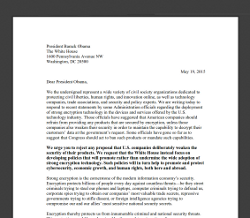The Licensing and Compliance Lab interviews François Marier of Libravatar
lundi 1 juin 2015 à 19:20In this edition, we conducted an email-based interview with François Marier, a free software developer from New Zealand. He is the lead developer of Libravatar. In addition to his passion for decentralization, he contributes to the Debian project and volunteers on the FSF licensing team.
Libravatar is a free network service providing profile photos for a number of Web sites, including bugs.debian.org and git.kernel.org. Its flexible architecture allows end users to host their own images and allows Web sites to use Gravatar as a fallback when necessary. It is licensed under the GNU Affero General Public License version 3, or end user can opt for any later version (GNU AGPLv3+).
What inspired you to create Libravatar?
As I explained in a talk I gave at linux.conf.au in 2011, my main sources of inspiration were the Franklin Street Statement, as well as a talk that Evan Prodromou gave at LibrePlanet in 2009.
I figured that we have a lot of work to do to replace all of the nonfree Web services we rely on, and so I decided that I would participate and get started with replacing the simplest Web service I could think of: the Gravatar.com avatar hosting service.
How are people using it?
The main audience for Libravatar are the developers of free Web applications. By using Libravatar over Gravatar, they are giving their users the option of either self-hosting their own avatars or using a free software service.
There are a few projects that use Libravatar, and in terms of traffic, our biggest users are the Debian, Fedora, Mozilla and the kernel Linux projects.
What features do you think really set Libravatar apart from similar software?
While Libravatar and Gravatar are quite similar in terms of features, Libravatar distinguishes itself in the areas of federation and self-hosting, as well as support for independent authentication systems. We also made it easy to delete and export your account because we believe that users should be in control of their own data.
Why did you choose the GNU AGPLv3+ as Libravatar's license?
Since my original goal was to produce a free software replacement for Gravatar, using a copyleft license was a no-brainer since it guarantees that the software will always stay free.
While developers are free to rely on the Libravatar service in their nonfree Web applications, I wanted any self-hoster using the main codebase to be part of our community. The GNU AGPL seemed like a good way to encourage a sharing culture.
How can people help contribute to Libravatar?
Our most pressing need is growing our mirror network. If you have a small amount of disk space (< 400 MB) and bandwidth (around 1GB / month) on your server, please get in touch at mirrors@libravatar.org! We are slowly becoming more and more popular and are already pretty close to capacity. Scaling a free service to keep up with increasing popularity is one of the big unsolved problems in the free software world, it seems.
Another easy place where people can help is with translations. We currently support fourteen different languages but we are always hoping to reach more people in their native language.
What's the next big thing for Libravatar?
It's hard to point to a single big thing because the service is fairly mature now, having been around since 2010.
Some of the things we are thinking about at the moment are: support for Do Not Track, SVG avatars (to help with high-DPI displays), and a graphical refresh with support for mobile. Get in touch if you are good with pixels and interested in getting involved.

